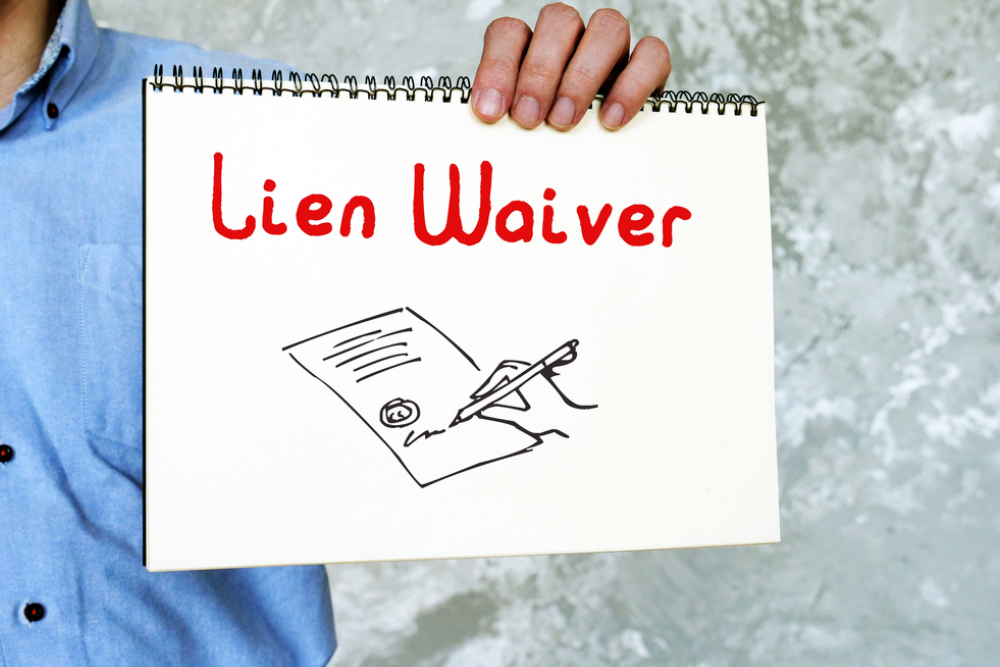Lien Waivers: How an Attorney Can Help

Unlike some states, Illinois does not have a specific form for mechanics’ lien claims or waivers set forth in the state code. Instead, owners and contractors are left to create their own documents. In order to comply with the terms of the act and avoid either losing a claim, in the case of a contractor or subcontractor, or having to pay twice for the same work, in the case of the owner, individuals responsible for managing construction projects should look for four basic forms, the sworn statement, and three different types of waiver of lien Illinois.
A Sworn Statement in Illinois
The sworn statement forms the basis for any mechanics’ lien claim in Illinois. It gives protection to both the property owner and the contractor. Owners should routinely demand sworn statements from the general or prime contractor on a project. General contractors should take particular care in preparing the statement.
A good sworn statement should contain a careful accounting of the work done on the project by everybody involved. The statement should reflect the original amounts contracted for and the work and amounts change orders made in the project. It should include not only the work done by contractors but should also list each individual subcontractor, the original amounts contracted for, and the work and amounts done on any change order made for each subcontractor.
With the sworn statement in hand, the owner, the contractor, and the subcontractors have an accounting for the project. Any mistakes can be detected and corrected at this point without the turmoil of dispute resolution or litigation later.
How To Fill Out Lien Waivers in Illinois
Since there is no single Illinois waiver of lien form set forth in the mechanics’ lien statute, many contractors are often tempted to create their own. Sometimes, these forms do not comply with the formal requirements of the mechanics lien statutes and can risk either losing a claim for the contractor or leading to the risk of double payment for the owner. A good Chicago mechanics lien lawyer can help a contractor devise a form that meets the requirements of the code or help an owner review the adequacy of a form that has been presented.
Properly drafted lien waiver forms will come in one of three basic varieties:
Waiver of Lien to Amount
Waiver of lien to amount is not always well-understood. This waiver is usually met early in a project when little work has been done. Perhaps a contractor requires a down payment or has received an advance for the purchase of specialized materials which cannot easily be used on some different project. In these instances, the contractor will submit a bill for a flat amount to the owner, and the waiver of the lien to the amount is useful for releasing the lien in such circumstances. As a project proceeds and work is completed, the waiver of lien to amount may be less useful, but it might also be used for periodic completion payments if these are called for in the contract.
Waiver of Lien to Date
Waiver of lien to date is used more frequently. This waiver is met with as a project is proceeding. The owner, contractor, and subcontractors periodically settle accounts. As each payment is made, the contractor furnishes a statement of work to date and the amount owed. The waiver of lien to date releases the amount accounted for in the statement.
Final Waiver of Lien
The final waiver of lien is the easiest form of release to understand. It is used when a project is completed. All work has been done to the satisfaction of the owner, and all sums owed have been paid or accounted for. Since there is no more business to transact under the contract, a final waiver is appropriate.
Each form has a specific use and function in accounting for work done on a project and securing necessary releases.
Grzymala Law Offices, P.C. has been serving clients in the city of Chicago and the state of Illinois for many years. If you are a property owner, agent, or contractor, and require the services of an experienced Chicago mechanics lien attorney to understand the provisions of Illinois law related to mechanics’ lien waivers or any other aspect of construction law, contact us today for a consultation.
